Prof. Gulsen Meral
Epigenetic Coaching Program,
United Kingdom
Abstract Title: Childhood Longevity Begins with Epigenetics: The Role of Nutrigenetics and Microbiota in Public Health
Biography:
Associate Professor Gülsen Meral graduated from Istanbul University Cerrahpaşa School of Medicine in 1994. She became a specialist in paediatrics in 2001 . She is Associate Professor in Pediatrics and worked as a specialist as well as deputy chief physician and chief physician at several hospitals. She was the Rector’s advisor between 2019-2021 at the Northern Cyprus ITU. She is also an Acupuncture instructor. She worked as a Nutrigenetics graduate course and lecturer and gave undergraduate and graduate courses on child development. She has many national and international publications, and worked on editorial boards and as reviewers. She has a Master's Degree in Hospital Management. She has a Turkish language literature undergraduate education. She completed PhD program in Medical Genetics. She is ambitious about poetry and has published five poetry books, as well as being the author of Dancing with Genes.. She is the Founder of the Nutrigenetics and Epigenetics Association, and has memberships in the Green Crescent and Rumelia Association, Istanbul Acupuncture Association, and International Society of Nutrigenetics & Nutrigenomics. She participated in the first and second International Epigenetic Congress as the president. She is still the organizer and educator of the Epigenetic Coaching Program. She is actively giving trainings on Nutrigenetic & Epigenetic Counselling to health professionals from all over the World as a certified CPD program. She continues research and training as the founder and manager of Epigenetic Coaching.
Research Interest:
Early life constitutes a critical period in which nutrition, genetics, epigenetics, and microbiota converge to determine long-term health outcomes and longevity. This review explores the dynamic interactions between maternal diet, infant microbiome establishment, and genetic predispositions in shaping immune development, metabolic adaptability, and disease vulnerability. Epigenetic processes—such as DNA methylation and histone modification—act as mediators, translating maternal nutritional exposures into persistent gene expression patterns that influence risks of obesity, allergies, and chronic diseases throughout life. Nutrigenetic perspectives highlight how variants in folate metabolism (MTHFR, MTRR), vitamin D pathways (VDR, GC, CYP2R1), and lipid metabolism (e.g., FADS) alter nutrient demands and developmental trajectories. The microbiota provides an additional regulatory dimension: early colonization during birth and breastfeeding fosters immune tolerance, whereas disturbances—through cesarean section, antibiotic exposure, or suboptimal maternal diet—are associated with allergy, autoimmunity, and metabolic disorders. Insights from historical famines and modern cohort studies illustrate how nutritional conditions in early life leave lasting epigenetic “signatures” that may extend across generations. By merging nutrigenetics and microbiome research within the Developmental Origins of Health and Disease (DOHaD) framework, the importance of precision nutrition from pregnancy onwards becomes clear. Evidence-based interventions—such as ensuring adequate maternal micronutrient intake, supporting breastfeeding, promoting microbiota-friendly diets, and tailoring advice according to genetic profiles—have the potential to decelerate epigenetic aging, reduce allergy prevalence, and lower lifelong susceptibility to non-communicable diseases. Ultimately, recognizing childhood as the true starting point of longevity positions a nutrigenetics-driven epigenetic perspective as a foundation for precision public health and intergenerational well-being

